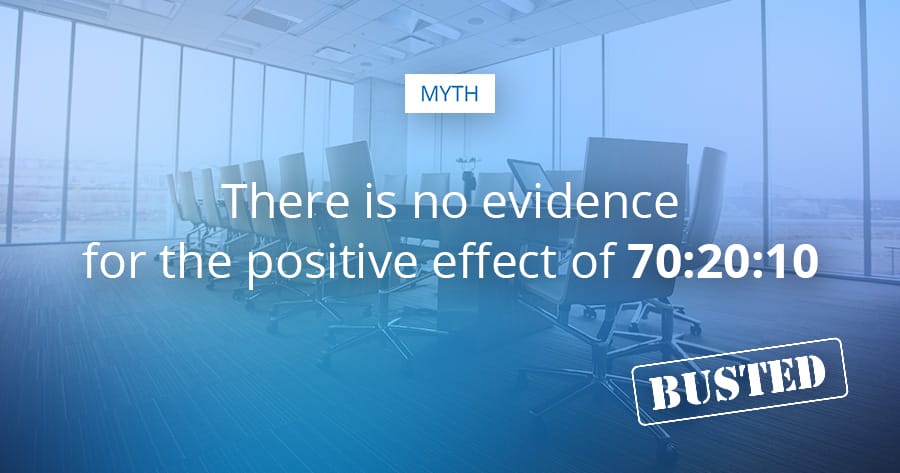
Think there’s no evidence for the positive effects of 70:20:10? Here’s what the experts say
The 70:20:10 naysayers of the world will point out that there’s no academic research specifically related to the 70:20:10 learning model, but it’s important to understand that there’s plenty of research that delves into the positive impact of informal, social and experiential learning.
In the passage below, taken from a new report authored by Towards Maturity and Charles Jennings, the analysts explain how companies can look at the individual components of the 70:20:10 learning model to best decide how the methodology can work for their organization as they implement it with an online training platform or learning management system (LMS).
70:20:10 combines structured learning with social and experiential learning
Current evidence is encouraging in terms of identifying the positive impact of new models such as 70:20:10. Participants in the Towards Maturity Benchmark were not asked about the impact of specific models, but the stark contrast between those who are applying 70:20:10 versus those who are not is striking. However, Top Deck organizations indicate that impact is not only determined by adopting a new model. It is critical that we dig deeper into the tactics of those reporting improved benefits.
Deconstructing the 70:20:10 model
Download the complete report to learn how new learning models like 70:20:10 are being applied, and why you should ignore the “numbers” that give 70:20:10 its name. The Towards Maturity Benchmark process has deconstructed and investigated the different behaviors within 70:20:10 to understand the extent to which different aspects of the learning model are being applied by L&D professionals in today’s workplace.
Read on to explore the activities behind the numbers, and to discover how you can apply these new learning models to your training program to build a better experiential learning strategy.
